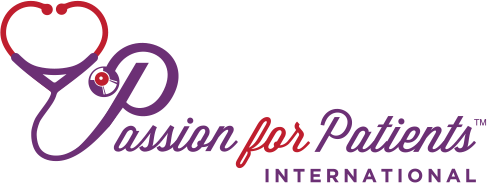Doctors work hard just to complete medical school. To have a successful medical practice, they have to be great doctors, and must also be good in business. Today, with complicated reimbursement formulas and increased government involvement in healthcare, doctors need even more expertise. Having a successful medical practice is very challenging. Medical professionals deserve our respect and admiration.
In addition to the medical and business skills a doctor must have in order to run a successful practice, patients want doctors with good bedside manners. It is common to find patients who love their doctor but still go elsewhere for treatment. Why do we switch doctors?
Patients switching doctors frequently reference at least one of the following reasons:
- How they are greeted and treated
- Long wait times
- Poor communication and follow up
- Negative experience with the staff
We can all agree that if doctors are really good, they will be really busy. If doctors are really busy, the medical office staff is also really busy. The staff is also caught in the middle. They are serving several demanding audiences. They serve the doctor, or doctors, in the practice. They try to serve the patients in the waiting room. They must handle multiple phone calls. And they are dealing with insurance carriers throughout the day for authorizations and billing instructions.
The challenges doctors face in the current market place are too numerous to list; however, paperwork, complicated reimbursement issues, patient complaints, and staffing issues typically top the list.
Most who enter the medical profession in any position do so because they want to care for people. Doctors also want their staff members to deliver the best customer (patient) service possible. Unfortunately, simply telling office staff to be polite does not guarantee a good patient experience. Many positions in medical offices are “entry level” positions. Young staff members are often inexperienced and seasoned staff members are sometimes burnt out. Like it or not, patients usually spend much more time with the medical staff than they do with the doctor; and many, if not most, patients are older, don’t feel well, may be difficult, or in pain. These scenarios may sometimes result in “accidental communication”. Receptionists may try to put patients at ease by calling them by their first name. Some patients may perceive that practice as presumptive or even rude. Medical assistants looking at computer screens may be trying to help patients by getting them on their way as quickly as possible. Some of those patients may not appreciate the lack of eye contact. In short, new and necessary skills like computer and texting skills are replacing what some patients expect as common courtesy.
Many doctors have found that investing in their team by providing training that focuses on interpersonal and communication skills mitigates patient and staff complaints and facilitates a higher level of Medical Etiquette.
Passion for Patients™ provides training to medical office staff members to sensitize them to a myriad of situations, and teaches them to effectively care for patients in busy surroundings and in the most difficult situations. Enriching the jobs of medical office staff members, and enhancing the patient experience benefits everyone!


